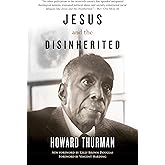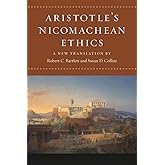
Enjoy fast, free delivery, exclusive deals, and award-winning movies & TV shows with Prime
Try Prime
and start saving today with fast, free delivery
Amazon Prime includes:
Fast, FREE Delivery is available to Prime members. To join, select "Try Amazon Prime and start saving today with Fast, FREE Delivery" below the Add to Cart button.
Amazon Prime members enjoy:- Cardmembers earn 5% Back at Amazon.com with a Prime Credit Card.
- Unlimited Free Two-Day Delivery
- Streaming of thousands of movies and TV shows with limited ads on Prime Video.
- A Kindle book to borrow for free each month - with no due dates
- Listen to over 2 million songs and hundreds of playlists
- Unlimited photo storage with anywhere access
Important: Your credit card will NOT be charged when you start your free trial or if you cancel during the trial period. If you're happy with Amazon Prime, do nothing. At the end of the free trial, your membership will automatically upgrade to a monthly membership.

Download the free Kindle app and start reading Kindle books instantly on your smartphone, tablet, or computer - no Kindle device required.
Read instantly on your browser with Kindle for Web.
Using your mobile phone camera - scan the code below and download the Kindle app.

Follow the author
OK
Time Past, Time Future: An Historical Study of Catholic Moral Theology Paperback – November 25, 2003
Purchase options and add-ons
- Print length282 pages
- LanguageEnglish
- Publication dateNovember 25, 2003
- Dimensions5.88 x 0.64 x 8.63 inches
- ISBN-101592444121
- ISBN-13978-1592444120
Book recommendations, author interviews, editors' picks, and more. Read it now.
Frequently bought together

Customers who viewed this item also viewed
Product details
- Publisher : Wipf and Stock; Reprint edition (November 25, 2003)
- Language : English
- Paperback : 282 pages
- ISBN-10 : 1592444121
- ISBN-13 : 978-1592444120
- Item Weight : 13.1 ounces
- Dimensions : 5.88 x 0.64 x 8.63 inches
- Best Sellers Rank: #310,961 in Books (See Top 100 in Books)
- #391 in Ethics in Christian Theology
- #884 in Christian Social Issues (Books)
- Customer Reviews:
About the author

Discover more of the author’s books, see similar authors, read book recommendations and more.
Customer reviews
- 5 star4 star3 star2 star1 star5 star100%0%0%0%0%100%
- 5 star4 star3 star2 star1 star4 star100%0%0%0%0%0%
- 5 star4 star3 star2 star1 star3 star100%0%0%0%0%0%
- 5 star4 star3 star2 star1 star2 star100%0%0%0%0%0%
- 5 star4 star3 star2 star1 star1 star100%0%0%0%0%0%
Customer Reviews, including Product Star Ratings help customers to learn more about the product and decide whether it is the right product for them.
To calculate the overall star rating and percentage breakdown by star, we don’t use a simple average. Instead, our system considers things like how recent a review is and if the reviewer bought the item on Amazon. It also analyzed reviews to verify trustworthiness.
Learn more how customers reviews work on AmazonTop reviews from the United States
There was a problem filtering reviews. Please reload the page.
- Reviewed in the United States on November 6, 2007In my college days forty years ago the old joke ran something like this: the surest way to wreck a promising ecclesiastical career was to teach moral theology, particularly in a seminary. From what I see and read the same can be said today, as moral theology seems to be that particular point where Catholic Church authority has placed most of its chips in its efforts to rally the faithful and separate the orthodox wheat from the dissenting chaff. John Gallagher's overview of Catholic Moral Theology is in many respects a tale of that pesky conflict: the Cathedral versus the University, casuists versus probablists, deontologists versus relativists, traditionalists versus modernists.
Gallagher for the most part restricts his study to the philosophical emergence of moral theology since medieval times. He is not prepared to underwrite the third century rite and theory of Penance nor, more surprisingly, the Irish monastic discipline of repeatable confession and its Penitentiaries as part of the organic development of moral theology. For Gallagher modern moral theology as an academic discipline was born of a viable philosophical system [as St. Thomas Aquinas put forward] and an ecclesiastical legal system [decretals and Canon Law]. These parameters frame eight hundred years of debate and development, and most notably the last five centuries which have come to be called "the manualist era," which many would argue extends into the present day.
One of the overriding themes of this work is the University vs. the Cathedral. By this Gallagher means the differing ends of each institution. Medieval universities enjoyed the more glamorous task of probing the Scriptures, the ancient fathers, and the classical secular libraries in their quest to organize and systematize the material and the spiritual world. The Cathedral, specifically its ecclesiastical and legal scholars, was entrusted with the more practical but vital responsibility of salvific pastoral life. The universities produced summas, the cathedral decretals. This dichotomy would repeat itself in later centuries.
Much of this work is devoted to the so-called Manualist Era, the product of the Council of Trent's [1545-1563] desire to increase the zeal of the faithful by means of fruitful sacramental participation. The first moral manuals were the product of primarily Jesuit seminary training and crafted a rational case-law approach for budding young confessors. But even the rigors of Jesuit discipline did not create an airtight uniformity. Controversies over free will, rigorousness, and laxity, led to a second generation of manualist thinkers. St. Alphonsus Ligouri highlights this period, noted for its humane approach to moral theory and practice, coupled with a strong emphasis on personal spirituality. Gallagher notes, however, that the controversies surrounding Probabilism at this time became somewhat self-absorbing [36].
The Enlightenment era with its emphasis upon subjective experience, coupled with political upheaval and scientific challenges to traditional order, was perceived as a major challenge to the Catholic Deposit of Faith. Leo XIII issued the encyclical Aeterni Patris in 1879 which established neo-Thomism as the philosophical mainstay of Catholic theologians, particularly its moralists. Neo-Thomism took several forms--Gallagher describes its recent evolution in considerable detail--but its primary thrust was to clarify the nature of man and his place in the cosmos as defined by the Angelic Doctor. The product of moral theology--anthropological definition and confessional practice--was a rebuttal to Descartes, Kant, and all thinkers for whom subjective experience became the cornerstone of reality.
Gallagher gives fair shrift to the theologians of the early twentieth century who came to known as modernists. It would be wrong to call modernist thinking a school; a better description is that of disparate theologians whose common concern was a kind of nouveau apologetic to meet the world situation prior to World War I. The author identifies the most prominent as Loisy, Laberthonniere and Tyrell, but he notes the sometimes overlooked theological awakenings of United States churchmen, notably Isaac Hecker [130ff]. One begins to see again the centuries old tension between cathedral and university, or more appropriately put, between the Magisterium and professional theologians.
This gradual widening of the chasm became increasingly more visible after World War II when the Dominicans Chenu and Congar and the Jesuits DeLubac and Danielou became the most visible representatives of a new breed of scholars laboring under the banner of "the new theology" [a title initially coined by its opponents.] Moralists, like their colleagues in other theological disciplines, were hardly unaffected by advances in biblical criticism. Whatever its other contributions and limitations, the new theology scored a telling point against neo-Thomism by its critique that the systematizing of creation had rendered the historical Incarnation of Jesus nearly superfluous.
Despite Pius XII's shot across the bow with "Humani Generis" in 1950, inventive Catholic theologians continued the quest for a new hermeneutic of grace along several lines. Gallagher traces the work of Rahner and Lonergan in developing transcendental Thomism, an attempt to bring contemporary realism and patristic wisdom into a happy marriage with Thomistic anthropology. From another vantage point, Haring's groundbreaking "The Law of Christ" [1954] introduced the concept of conversion to the Biblical Christ as a cornerstone in moral theology. As Gallagher notes, the very style of moral manuals seemed somewhat outdated and inadequate after Haring, who influenced an entire generation of Catholic moralists, including the Americans Fathers Charles E. Curran and Richard McCormick.
Gallagher gallantly attempts to summarize the turbulent years after Vatican II [1962-65]. He does so primarily under the headings of Situation Ethics and Proportionalism. Even the author admits that the issues themselves and the ecclesiastical controversies surrounding them are complex for one simple rendering, and in fact one might argue that the Church is still in the throes of the dilemmas. Gallagher's study was published in 1990, just a few years prior to the release of the Catechism of the Catholic Church, which in its style and sourcing maintains a distinctively neo-Thomist cast in its treatment of moral theology.














